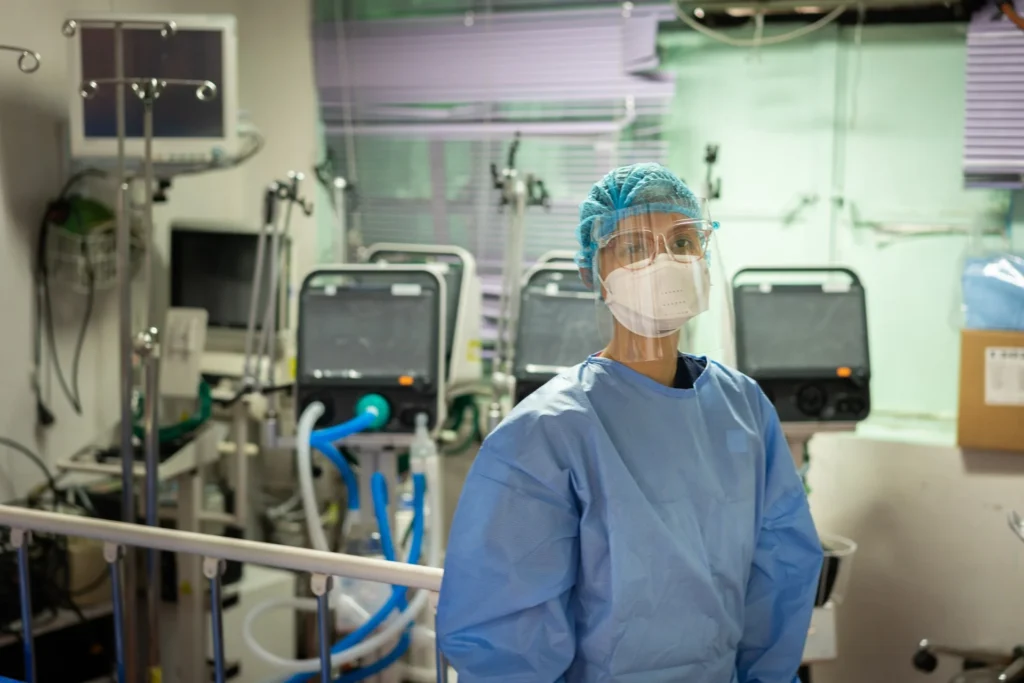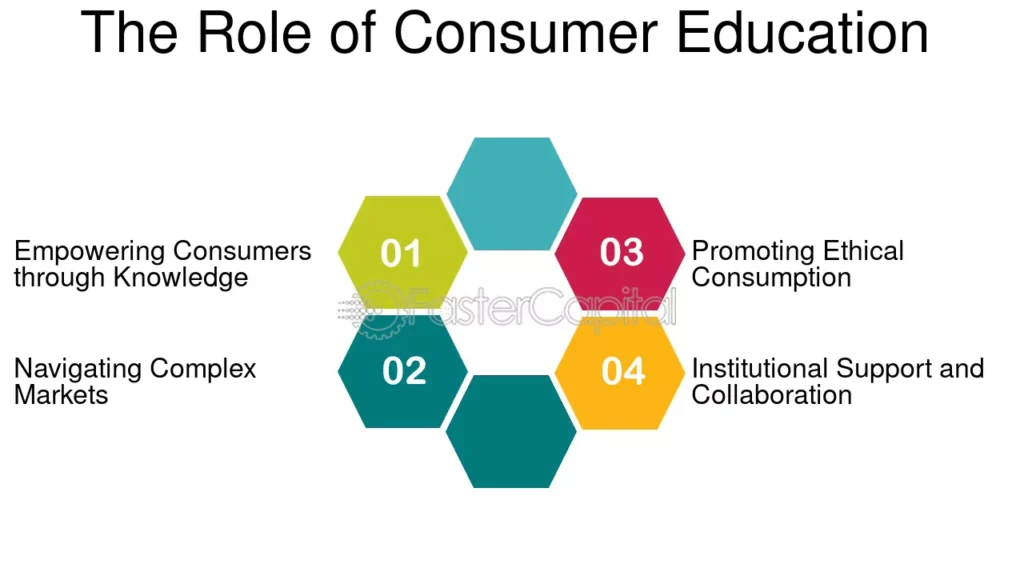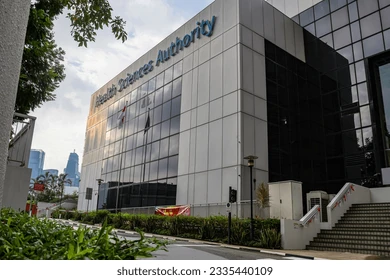Public health safety is an essential component of any nation’s healthcare system, as it directly impacts the well-being of its population. In today’s fast-paced world, where technological advancements, medical innovations, and globalization constantly evolve, the regulation of health-related products becomes even more crucial. Without proper oversight and regulation, the safety and efficacy of health products could be compromised, leading to health risks, fatalities, and economic loss. This is where regulatory bodies such as the Health Sciences Authority (HSA) come into play. The HSA plays a pivotal role in ensuring that public health safety is maintained at high standards in Singapore, through the regulation and monitoring of health products, clinical trials, and emerging healthcare innovations.
In this article, we will explore the key functions and responsibilities of the Health Sciences Authority (HSA), the significance of its regulatory practices, and how it contributes to public health safety. We will also answer some frequently asked questions to provide a comprehensive understanding of the agency’s role and influence in maintaining a safe and healthy public health environment.
Key Takeaways
- The Health Sciences Authority (HSA) regulates health products to ensure their safety, efficacy, and quality before and after they reach the market.
- The agency plays a key role in overseeing clinical trials, preventing the sale of unsafe products, and monitoring adverse health events.
- The HSA collaborates internationally to maintain high global standards for health product regulation.
- Through public education and awareness campaigns, the HSA helps ensure that consumers and healthcare professionals are well-informed about product safety.
What Is The Health Sciences Authority (HSA)?
The Health Sciences Authority (HSA) is a government agency in Singapore that is tasked with regulating and overseeing a wide array of health-related products and services. It operates under the Ministry of Health (MOH) and was established in 2001 to ensure the safety, efficacy, and quality of health products, which include medicines, medical devices, cosmetics, vaccines, blood products, and even traditional medicines.
The core responsibility of the HSA is to protect and enhance public health by ensuring that all health products available to the public meet stringent safety standards. This is achieved through a combination of scientific evaluation, post-market surveillance, policy development, and public education.
HSA’s role extends beyond regulation; it also fosters innovation in the healthcare sector and collaborates internationally to develop regulatory frameworks that ensure safety and improve health outcomes globally. Its regulatory responsibilities make it a critical player in ensuring that healthcare products and services meet high-quality standards, protecting individuals from harmful products, preventing adverse health reactions, and ensuring that public health is not compromised.
Key Functions and Responsibilities of the Health Sciences Authority
The Health Sciences Authority is responsible for a range of regulatory and monitoring functions to safeguard public health in Singapore. The agency operates across various sectors, including pharmaceuticals, medical devices, clinical trials, traditional medicines, and food safety. Let’s examine some of the key functions and responsibilities of the HSA:
Regulation of Health Products

One of the most important functions of the HSA is regulating the safety, efficacy, and quality of health products. This includes medicines, medical devices, cosmetics, and traditional medicines. For each type of product, the HSA sets high standards for approval, ensuring that they meet safety and quality benchmarks before they are allowed in the market.
- Medicines: The HSA is responsible for reviewing clinical trial data, evaluating drug formulations, and ensuring the safety and effectiveness of pharmaceuticals before they are approved for public use. The agency also oversees the labeling, marketing, and post-market surveillance of these drugs.
- Medical Devices: The HSA regulates medical devices, ensuring that they meet safety standards and are effective for their intended use. From basic products like bandages and thermometers to complex devices like pacemakers and ventilators, the HSA ensures that all medical devices meet strict regulatory standards.
- Cosmetics: The HSA ensures that cosmetics sold to the public are safe for use. This involves regulating product ingredients, packaging, labeling, and ensuring that manufacturers adhere to good manufacturing practices (GMP).
- Traditional Medicines: The agency regulates traditional medicines to ensure that they are both safe and effective. This includes herbal medicines, acupuncture devices, and other traditional therapies.
Pre-Approval Evaluation and Drug Safety Assessment
Before any health product, including drugs, vaccines, and medical devices, can enter the market, the HSA conducts a rigorous pre-approval evaluation process. This evaluation involves reviewing scientific evidence, clinical trial data, safety protocols, and manufacturing processes to ensure that the product is both safe and effective.
- Clinical Trials: The HSA ensures that clinical trials are conducted ethically and safely. This includes ensuring that informed consent is obtained from participants and that the trials follow international standards.
- Risk-Benefit Assessment: The agency evaluates the potential risks and benefits of health products based on clinical trial data and scientific evidence. If the risks outweigh the benefits, the product will not be approved for use.
Post-Market Surveillance
The HSA continues to monitor the safety of health products even after they have been approved and marketed. This is called post-market surveillance. The agency collects data on adverse events, side effects, product failures, and other safety concerns that may arise once a product is used by the general public. The HSA also works with healthcare providers, patients, and product manufacturers to ensure ongoing safety monitoring.
- Adverse Event Reporting: The HSA maintains a reporting system where healthcare professionals and consumers can report adverse reactions or incidents related to health products. This helps the agency track safety concerns and take corrective actions if needed.
- Product Recalls: If a product is found to be harmful or ineffective after it reaches the market, the HSA has the authority to recall the product, remove it from the market, or issue safety alerts to prevent further harm.
Clinical Trial Regulations
The HSA plays a critical role in regulating clinical trials, which are essential for testing the safety and efficacy of new health products. The agency ensures that clinical trials are conducted in compliance with ethical standards and international guidelines.
- Ethical Review: The HSA ensures that clinical trials protect the rights and safety of participants. This includes reviewing trial protocols, informed consent processes, and monitoring the welfare of participants.
- Good Clinical Practice (GCP): The agency ensures that clinical trials are conducted according to international guidelines known as Good Clinical Practice (GCP), which outlines the standards for conducting clinical research.
Consumer Education and Public Health Communication

Another critical function of the HSA is educating the public and healthcare professionals about product safety, emerging health threats, and best practices in healthcare. The agency runs public health campaigns, issues product safety alerts, and provides accessible information on safe product usage.
- Public Awareness Campaigns: The HSA conducts campaigns to raise awareness about issues like counterfeit medicines, the dangers of self-medication, and the importance of vaccination.
- Health Product Information: The agency provides information on the safe usage of health products, including dosage instructions, potential side effects, and proper disposal methods.
Regulation of Biotechnological and Innovative Products
The HSA is also tasked with regulating innovative healthcare products, such as biologics and gene therapies. These products involve advanced scientific technologies and require specialized regulatory oversight to ensure that they are safe and effective for human use.
- Regulation of Biologics: The agency ensures that biologics, such as vaccines, monoclonal antibodies, and gene therapies, undergo the necessary clinical trials and regulatory reviews before approval.
- Advanced Therapeutic Products: With the rapid growth of biotechnology, the HSA plays an essential role in regulating advanced therapeutic products, ensuring they meet safety and quality standards.
Collaboration with International Regulatory Bodies
To ensure that Singapore adheres to global health standards, the HSA works closely with international regulatory agencies, such as the World Health Organization (WHO), the U.S. Food and Drug Administration (FDA), and the European Medicines Agency (EMA). This collaboration allows for the exchange of information, harmonization of regulatory processes, and alignment with global best practices.
Also Read: Understanding The Role Of Health Sciences Authority In Public Health Safety
Conclusion
The Health Sciences Authority (HSA) plays an indispensable role in safeguarding public health in Singapore. Through its rigorous regulatory oversight, the agency ensures that health products meet high safety, efficacy, and quality standards. From evaluating drugs and medical devices before they enter the market to continuously monitoring their performance post-market, the HSA helps protect the public from harmful products and promotes public health and safety. Its collaboration with international agencies and its role in fostering innovation in healthcare further cement its position as a critical player in public health.
FAQs
What does the Health Sciences Authority (HSA) regulate?
The HSA regulates a broad range of health products, including medicines, medical devices, cosmetics, vaccines, blood products, and traditional medicines, to ensure their safety, efficacy, and quality.
How does HSA ensure the safety of health products?
The HSA ensures safety through a multi-step process, including pre-market evaluation, clinical trial regulation, post-market surveillance, and ongoing monitoring of adverse events and product safety.
Can the public report unsafe products to the HSA?
Yes, consumers, healthcare professionals, and manufacturers can report adverse reactions or unsafe products to the HSA for investigation and action.
How does HSA regulate clinical trials?
HSA ensures that clinical trials adhere to international guidelines, ethical standards, and safety protocols. It also monitors trial outcomes and ensures participant safety.
What happens if a health product is found to be unsafe?
If a product is found to be unsafe, the HSA can issue warnings, recall the product, or take regulatory actions to prevent harm, including halting its sale or distribution.
What is post-market surveillance?
Post-market surveillance involves monitoring the safety and effectiveness of health products after they are approved for public use. It includes tracking adverse events, product failures, and safety concerns.
How does the HSA contribute to public health education?
The HSA educates the public through awareness campaigns, product safety alerts, and providing reliable information on the proper usage of health products to ensure safe practices.

